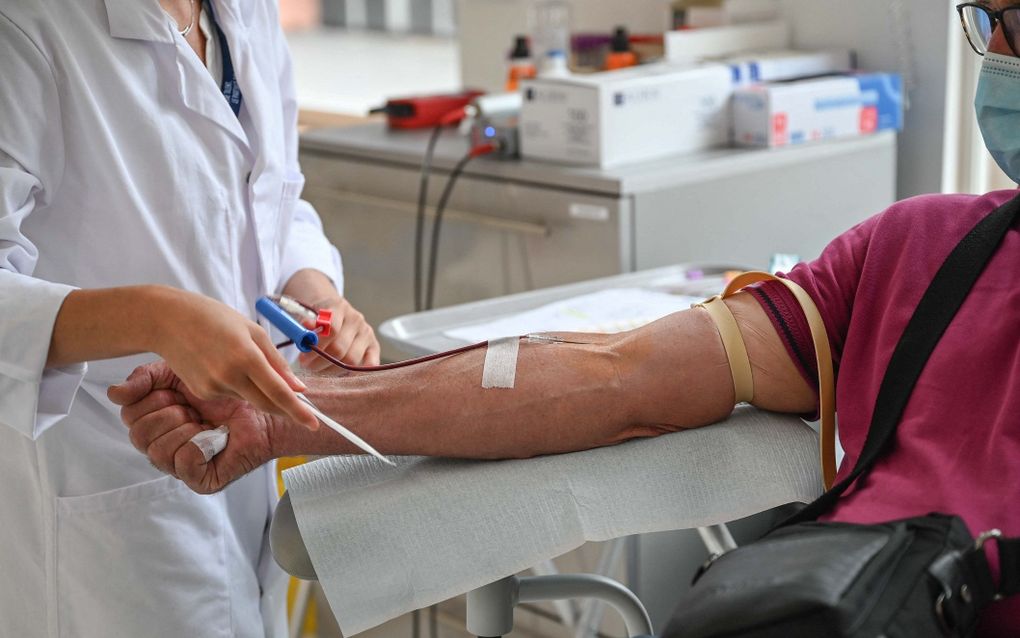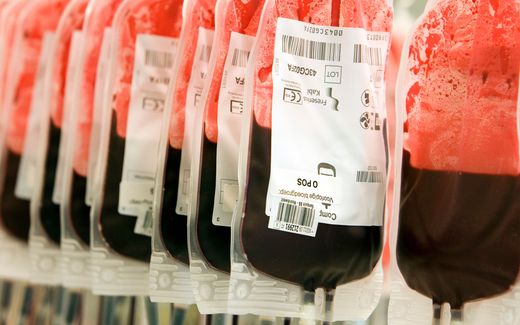European countries weaken blood donation policy for gays

Photo AFP, Denis Charlet
European Union
From mid-2023, gay and bisexual men will be allowed to donate blood in Germany. The same rules will apply to everyone. Three questions and answers.
Why aren’t they allowed to donate blood now?
According to blood banks, blood from homosexuals poses an increased public health risk because of an increased chance of them being infected with HIV. This virus causes AIDS or other infectious diseases.
Many countries exclude other groups from donation, for instance drug users, animal organ recipients and people who have recently travelled to certain areas or countries. Blood banks argue that although blood is tested, there could be a false negative, and potentially dangerous blood could enter the health systems.
People who support the ending of deferral periods argue that current technology is sophisticated enough to trace unhealthy blood.
Why did the German government change its policy?
Health Minister Karl Lauterbach, a Social Democrat, sees the current policy as discrimination that he wants to end. Therefore, he uses a sentence from the Traffic light coalition agreement from 2021. “We are abolishing the blood donation ban for men who have sex with men and for trans people, if necessary also by law”, it says.
With the planned change in the law, the German Medical Association must adjust its blood donation guidelines within four months. According to the current guidelines, men who have sex with men may only donate blood if they had no sexual contact with “a new or more than one sexual partner” in the past four months. Before 2017, men who had sex with men were not allowed to donate blood at all; then, a deferral period of twelve and, most recently, four months was set. “Whether someone can become a blood donor is a question of risky behaviour, not sexual orientation”, Lauterbach said, according to the Frankfurter Allgemeine Zeitung.
What is the policy of other European countries?
Several European countries do not have deferral policies at all. In Italy, the questionnaire for the sexual behaviour of blood donors is similar for homosexuals and heterosexuals. Most countries do, however, have a policy of deferral when people have had various sexual contacts recently.
Countries that do have deferral policies loosen them as time progresses. The parliamentary ombudsman in Finland launched an investigation into the possible unconstitutionality of the lifetime ban in January 2006. In June 2008, it was concluded that the ban was not unlawful in Finland as it is based on “appropriately reasoned epidemiological information” and because it is related to sexual behaviour rather than sexual orientation. In December 2013, the Finnish Red Cross blood service announced lifting the ban and introducing a one-year deferral instead. In 2021, the deferral period in Finland was reduced to 4 months and in 2022, the deferral period was lifted completely.
In 2016, France implemented a 1-year deferral period policy on all gay and bisexual men donating blood. However, that period was shortened to four months in 2020.
The European Union also has legislation on blood donations. Their focus is on sexual behaviour rather than orientation. Although Member States are required to transfer European regulations into national law, this specific policy is unclear. Since it refers to “high-risk sexual contact”, individual Member States can interpret this legislation for themselves.
Related Articles






